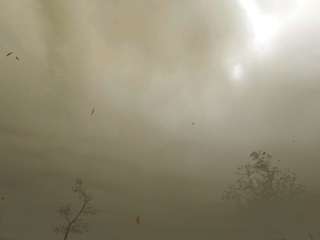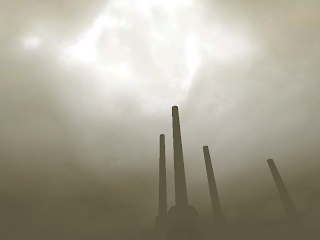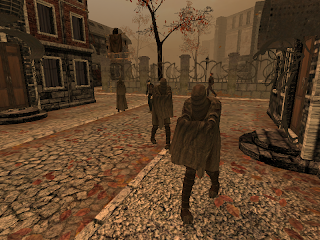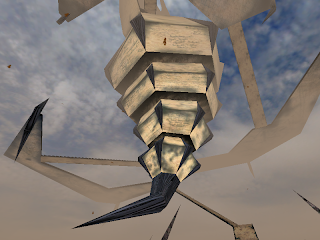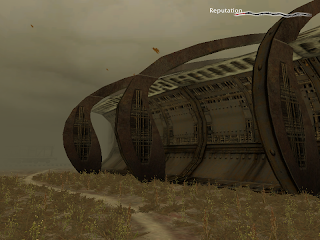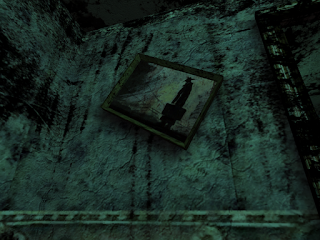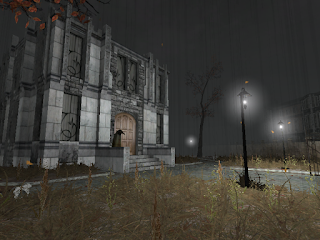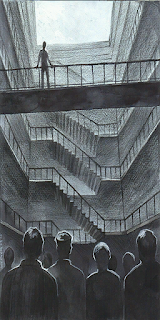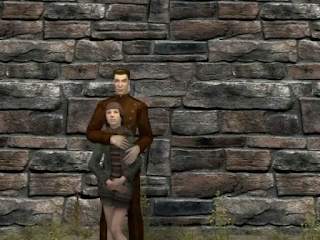Isn't it odd how you'll remember a quote that perfectly captures the essence of a concept, and then when you look it up, the quote isn't so perfect after all? Well, I recently remembered this quote while noticing the difference in my playing ability from night to night (during my daily practice sessions). Every once in awhile I'll have a really good night, where my playing will be just spot on, and it even impresses myself. Other nights, are clearly just bad nights. For better or worse, most nights sit somewhere in between those extremes.
Tonight was pretty bad, which I think I can blame on yesterday being a particularly good night. I got a little carried away on the new licks I've learned for the song I'm working on (which sound fantastic, as does the entire song, which I am extremely excited about - it'll be a while before I learn the whole thing, though). And tonight my fingers are still feeling a bit rough, so I didn't have that delicate touch I need to nail every note. But, even as bad as my playing was tonight, I'm still pretty impressed overall with how it sounds, this being my first recorded practice (in years).
You see, I got a handheld digital recorder for Christmas. Which I asked for. Which will make recording (and sharing) my music (well, not *my* music, but the music I play) infinitely easier than it was with the analog tape technology I previously had. I wanted it primarily to record my live performances at Open Stage, but I think it will prove to be an invaluable aid to my daily practices as well, judging from what I'm currently listening to.
I think, despite the songs I'm playing not being mine, I would love to record a whole album of covers. Not complicated recording, but just a live/live in the studio sort of thing (depending on whether I use practices or Open Stages). With the technology I now have, it's easy enough to record every single one of my practices. All I need to do is dedicate a[nother...] hour or so daily to listening back to those recordings. I imagine most of the recordings will be so-so, but I don't have to keep them all (or even most of them). As long as I'm recording when the next good night comes up, I'm bound to have some great material. Or, if a particular song sounds good on a particular night, I can grab it. And then either use it, or replace it with a better version that comes up on a different day. This plan requires some time to get good results, but can you imagine what those results could be?
There are some complications, however. I set the recorder up right in front of my amp tonight, and it sounds great. Vocals are nonexistant, though. I'm thinking about redoing the whole setup. I'd like to have more practice playing at loud volumes, after all. When I go to Open Stage, I'm still too much out of my league, despite practicing amplified regularly. When I turn the volume up, then every little sound I make resonates throughout the room. Add to that the stress of playing in front of an audience, and it can be a mess. I do my best to get through, but I think I could stand to get more experience playing at loud volumes.
The only way that would really be feasible, for me, would be to practice through headphones. Then I could turn it up without bothering anyone, or starting to feel too self-conscious. To do that, I'd need to invest in a good pair of headphones (as I keep saying I'm meaning to do). I already have a microphone and a second amp I could pump the vocals through. I'd just need to somehow redirect the signal from both amps into the headphones. Then, I could find a way to simultaneously record from that signal as I listen to myself play. It sounds complicated, but I think it's doable. With the right splitters...

There's even more I've been thinking about doing, but this is even less concrete at this stage. It's about filling out my sound. The songs I play would sound so much better with some backing. Ignoring for now the possibility of playing in a band, there are two options. 1) Employ a simple metronome. This would, at the very least, get me in practice for playing on time, and (hopefully) for being focused enough not to make mistakes in the middle of the song, since it would be harder to get back on track. This would be even moreso the case with option 2) which would be to record more substantial backings, specific to the songs I play, which I could then play through my looper/sampling pedal. Where I'd get those backings is a good question, though. I could try ripping some songs (the pedal itself has an option to record a song with the lead track off or something, I tried it once and it was neat, can't guarantee it'd work appropriately for every song, though). I could also try learning those parts (ambitious much?), which might mean having to learn [at least simple] drum and bass parts.
As I said, this part is all very much speculation. But at the very least, if I could get some good recordings of what I'm currently doing, that alone would be pretty damn cool.














